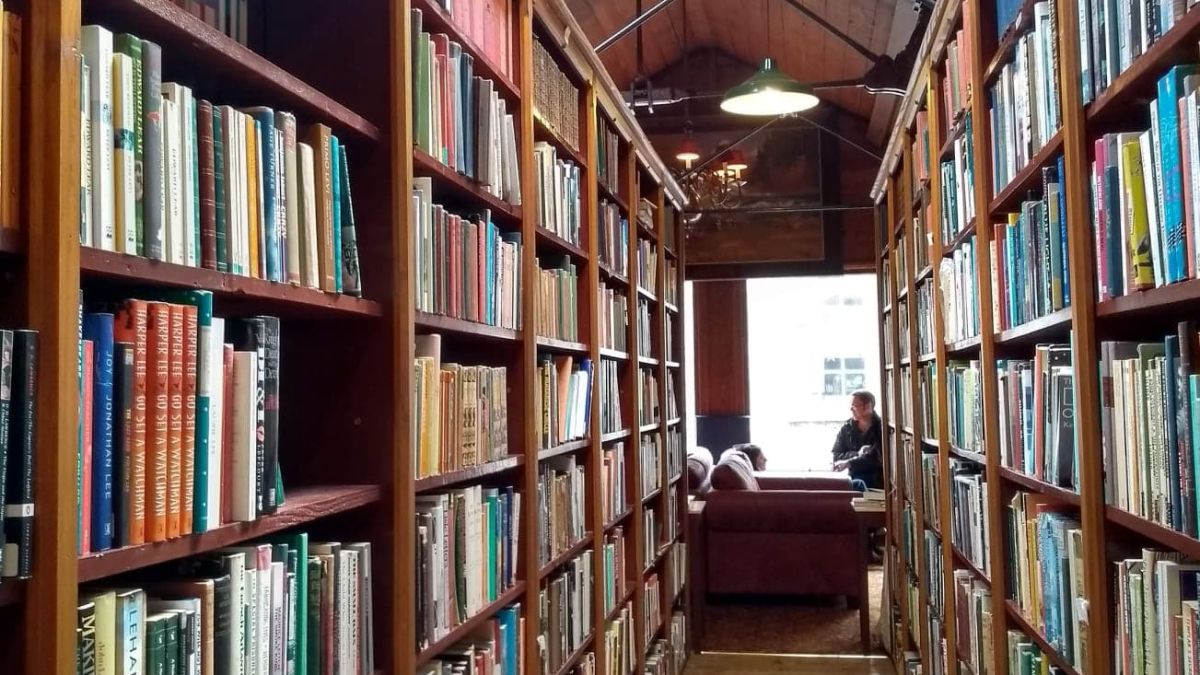International Women’s Day: the writers who inspire us
By Aileen Loftus, Maisie Scott and banakaswani

For International Women’s Day we wanted to reflect on the inspirational female writers whose novels have stayed with us. To celebrate the literary achievements of women and the fictional achievements of their protagonists, the books section writers have each chosen a text that has influenced or inspired us.
There are so many incredible books by women, of all genres, that these decisions didn’t come easily, and the list could have been endless.
Here are our reading recommendations for International Women’s Day:
Aileen: The Handmaid’s Tale by Margaret Atwood
Atwood’s uncanny ability to seemingly predict the future, and to weave environmental concerns with feminist ones means The Handmaid’s Tale has always stayed with me. It is a terrifying depiction of how quickly and easily democracy can be dismantled, and the potential vulnerability of women if that were to happen. Yes, the TV series was over-hyped and yes, the sequel The Testaments was disappointing in so many ways. However, that doesn’t take away from the harrowing, moving original.
The Handmaid’s Tale tells the story of Offred, which is not her real name, but the diminutive ‘Of-Fred’, the commander she serves. She is a Handmaid in The Republic of Gilead, a chilling parallel of a future America.
Atwood has always maintained that the novel can not be classified as science fiction. Nothing practised in Gilead is genuinely futuristic, and so the book introduced me to the genre of ‘speculative fiction’. It is this that makes the novel so troubling, as it is ultimately so believable.
It is a novel that benefits from re-reading, from studying, from reading around and from re-reading again. Every time I open it I notice some extra detail, often because it has become increasingly relevant in today’s world.
The Handmaid’s Tale has impacted my understanding of global feminism, but I also studied it for my A-Levels. It is therefore a book that is wound up in my decision to study English Literature at university, and to go on to read a huge range of incredible books by female authors.
Bana: A Room of One’s Own by Virginia Woolf
I first read A Room of One’s Own when I was sixteen. It has since earned a special place on the list of my favourite books. Woolf’s piece is an extended essay based on lectures she was held on women in literature.
What I found most remarkable in this book is Woolf’s stream of consciousness writing style. It is the kind that has the power to transcend that detachment or objectivity I often feel while reading a book.
I like to think that the ebb and flow of her style has an edge of resonance. For me, this resonance manifested in the wholesome and necessary epiphany that, as a woman, I need to craft a “room” of my own. Simply put, this is a reminder and urge for women to take up space in all areas of our lives.
Maisie: The Edible Woman by Margaret Atwood
I feel like a copy-cat also throwing Margaret Atwood into the mix after Aileen, but I had to include The Edible Woman in this list. The novel is one of Atwood’s early publications, and it captures the essence of North American second-wave feminism. The Edible Woman was first published in 1969.
Atwood’s protagonist Marian lives in a house-share somewhere in the American suburbs and works a 9-5 job. Marian’s boyfriend proposes to her and she agrees to be his fiancee. However, Marian defies expectations as she does not conform to the role of delighted bride-to-be. Instead Marian becomes ill to the point that she cannot eat and meat (in particular) disgusts her.
The relationship with her boyfriend deteriorates and Marian breaks off the engagement. The liberation Marian gains from cutting ties with her man reignites her appetite. So, Marian celebrates by making herself a cake. The cake is a sponge shaped like a woman and she devours it.
The food aspect is a striking part of the novel and it creates a metaphorical dimension which I am unsure how to decode. Potentially the novel should now be viewed with a CW due to the discussion of disordered eating which takes place.
In summary, the novel has influenced my feminism because the way Marian breaks off the engagement has always struck me as defiant and radical. Women who resist marriage have always captivated my attention. However, I also recognise that to refuse matrimony you must possess a degree of financial privilege to be able to afford to do so as marriage is an economic system.
Ultimately Atwood’s protagonist deserves the whole cake and not the crumbs her ex provided her with, so the cake scene will always be iconic to me.
This year even more than ever, the perfect way to celebrate International Women’s Day is to read a book that inspires you. We hope our list has given you some ideas!







